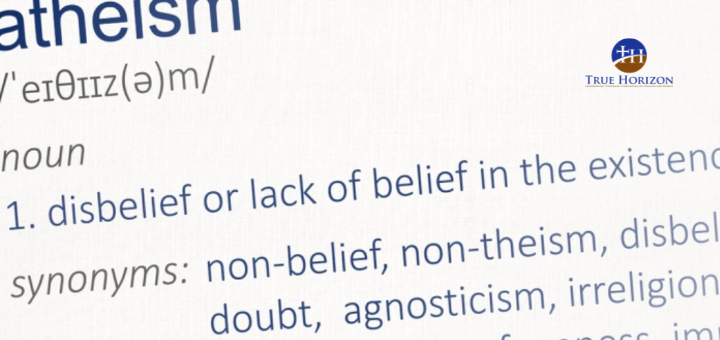Mind Boggling Silence
 There are two basic views (and some sub-categories of each) about how to understand the relationship between the brain and the mind. The first, physicalism, says that the mind is nothing more than an extension of the brain. The second, dualism, says that the mind and brain are different things altogether.
There are two basic views (and some sub-categories of each) about how to understand the relationship between the brain and the mind. The first, physicalism, says that the mind is nothing more than an extension of the brain. The second, dualism, says that the mind and brain are different things altogether.
Physicalism insists that there is no difference between the mind and the brain — that the “mind” is simply a way to refer to the results of chemical processes that go on in the neural network controlled by the gray matter between your ears.
“According to strict physicalism, a human being is merely a physical entity. The only things that exist are physical substances, properties and events … The physical substance called the brain has physical properties such as a certain weight, volume, size, electrical activity, chemical composition and so forth … when someone has an occasion of pain or an occurrence of a thought, physicalists hold that these are merely particular physical events — events where certain C-fibers are firing or certain electrical and chemical events are happening in the brain and central nervous system.”*
Since thoughts and feelings are nothing but physical events that result from electrical impulses between neural cells, we can actually connect electrodes to the brain, stimulate it in different ways, and observe which area of the brain “lights up.” We can manipulate that area of the brain with surgery or chemicals and thereby alter behavior, or at least understand what made you act the way you did when you felt sad, or angry, or happy, or attracted to a mate.
Once we know where our different behaviors and inclinations reside, we are well on our way to solving all the mysteries of the origin and operation of imagination, concepts, thoughts, instincts, and morality. Since these are nothing but different kinds of chemical reactions, and “free will” is really nothing but an illusion about the responses the chemicals in your brain have to various inputs from physical events that preceded the actions you take, neuroscientists like will soon be able to explain and control each of them.
You are your brain and your brain is a computer made of meat.
With that in mind, meet Dr. Patricia Churchland. Churchland is one of the leading philosophers of neuroscience in the world. This means that her work focuses on philosophical questions about how consciousness relates to brain function. Listen to Dr. Churchland explain some exciting new discoveries and implications of neuroscience:
Very interesting stuff (if you ignore the belittling sarcasm).
However, it’s one thing to go on The Colbert Report and cite scientific research about oxytocin to a comedian and his audience. It’s quite another thing to have to answer philosophical questions about your research to someone who actually knows how to ask them. You see, each of the phenomena Dr. Churchland talked about here are examples of correlation — that certain actions and/or traits that we observe “correlate” to neurons firing in a specific location in the brain. No argument there.
The problem is that, as any scientist knows, correlation does not equal causation.
Just because we can correlate these things does not mean that one of them caused the other. To put it another way, smoke correlates to fire quite nicely, but that does not in any way mean that the smoke caused the fire.
The problem with physicalism is that there doesn’t seem to be a way to reconcile the physical stuff we can observe going on in our brains with things like the thoughts, desires, plans, and intentions that make those things occur. In fact, when scientists perform the studies that correlate brain activity in certain areas of the brain with the thinking that correlates to that activity, they have absolutely no way to know what the subject of the study is thinking when the neural networks are firing — unless, of course, they ask. In other words, neuroscientists can hook electrodes up to your brain all day long, but they can never know what you are thinking … unless you tell them.
You, it seems, are something different than your brain.
That brings us to Dualism? This is a view of the relationship between mind and brain which holds that the mind is actually a different “substance” (philosophically speaking) that is not physical but that somehow interacts with the physical brain. This view would be compatible with the idea of the soul (the mind being some kind of subset of the soul) and offers a way to make sense of several phenomena we observe about human beings that, frankly, make no sense otherwise. Without getting into details, some of these things include: continuity of self, free will, agent causation, breakthroughs in the study and treatment of obsessive compulsive disorder, and near death experiences.
To be fair, no one is claiming to be able to explain exactly how this interaction takes place but it does seem to offer a way to make sense of several different phenomena that we observe and to also be perfectly consistent with the existence of the non-physical reality of the “self.”
So, back to Dr. Churchland.
What happens when she is forced to defend her physicalist view of the mind/brain problem against someone who not only knows the flaws in that view, but who can cite reliably qualified sources that completely contradict what Dr. Churchland can get away with saying on The Colbert Report? Listen to what happens when those sources include blatant misrepresentations of the work of others which have been made by Dr. Churchland herself. Her actual answer starts at about the 3:45 mark in the audio. It gets really good after about the 15:00 minute mark when the interviewer (who, unlike Stephen Colbert, actually knows what he’s talking about) points out the blatant misrepresentations Dr. Churchland makes in her own book! Very entertaining …
Maybe the fact that we can hear background noise from Dr. Churchland’s end of the line while she claims the connection isn’t working is the result of some kind of out-of-body experience that can only be understood by doctors of neuroscience. And maybe “the dog ate my internet connection” is an acceptable way to defend the physicalist view of the mind/brain interface to those who dare not question it. But, for those with minds that are open to whatever the truth happens to be true regarding the existence of non-physical realities like the soul, the mind, and God himself, this interview is truly something to behold.
Sometimes silence really is golden.
__________________
* J. P. Moreland, The Soul: How We Know It’s Real And Why It Matters, p. 25. This book is an accessible treatment of the idea that there really is evidence for the existence of the human soul. If you are interested in that topic, I highly recommend reading J. P. Moreland’s book, where he approaches the subject honestly and forthrightly. You can order Dr. Moreland’s book directly from Amazon.com here:





If a computer could run a simulation of brain activity and that brought about an A.I., would that make you think physicalism is true?
Grundy,
Yes, I would if … the computer could program itself to "simulate brain activity"
That's the problem. Computers can't program themselves to do anything. We need programmers for that — persons with minds that are independent of the hardware on which the software is designed to run.
I mean that programers program a simulation of physical brain activities–a simulation of tissue and neurons and synapses–that stuff. And that from that A.I. emerges without specific A.I. programing.
That doesn't help.
The materialist account of the mind contends that the consciousness we observe has "emerged" from non-consciousness — that there is non-conciousness all the way down. But the scenario you propose BEGINS with a rartional, freely chosen decisions and conscious activity in the minds of the programmers who create the simulation.
If you can show me how the simulation could emerge from a box of hardware on its own, I would accept physicalism. But remember, the box of hardware contains computer parts that were themselves design by a conscious hardware architect … so I'm afraid I would also have insist that you begin with silicon, aluminum etc. before your challenge would work.
Okay, it sounds like you have a problem with unguided evolution getting to a point in which a physical brain can run a consciousness and not that a physical brain can, in fact, run a consciousness. Is that correct?
That's closer. The fact that you and I are having a back and forth conversation is proof enough for me that the physical brain can in fact, run a consciousness. But that's different from saying the physical matter that makes up the brain can account for the ORIGIN and NATURE of consciousness.